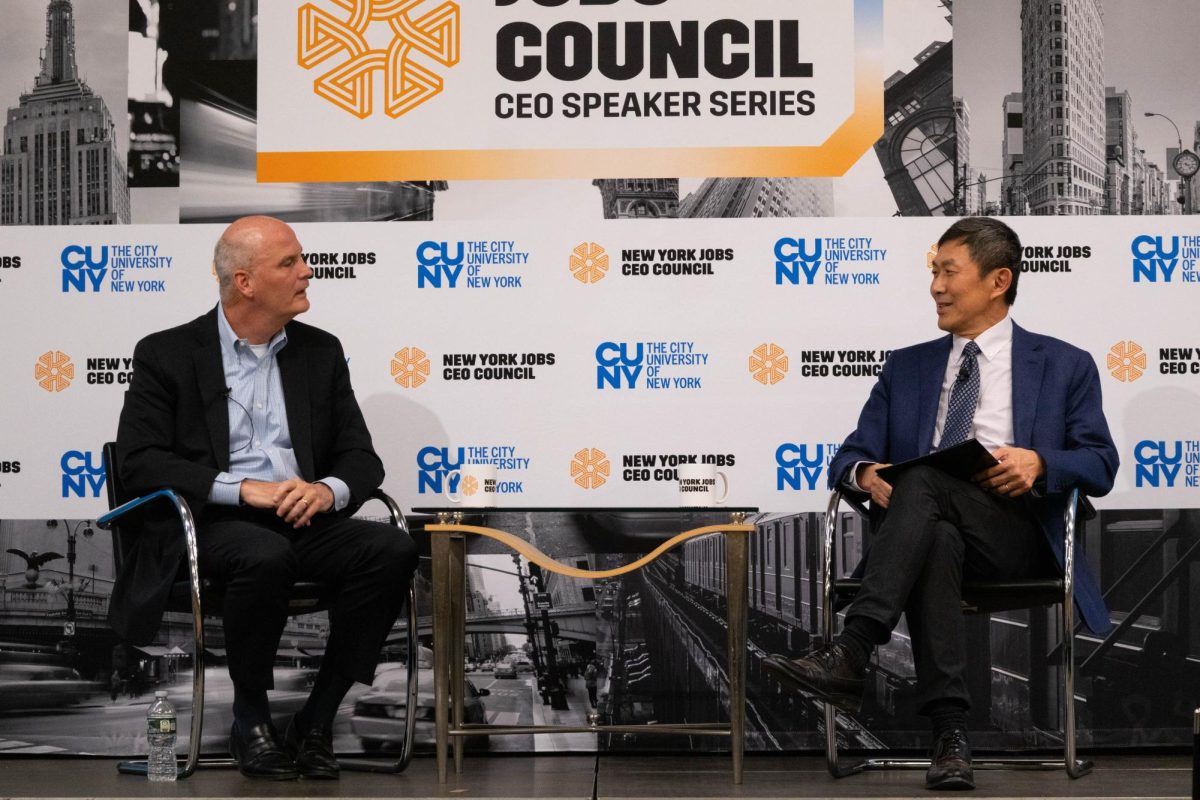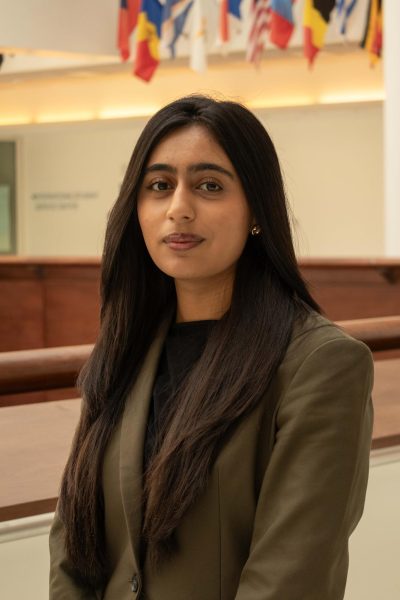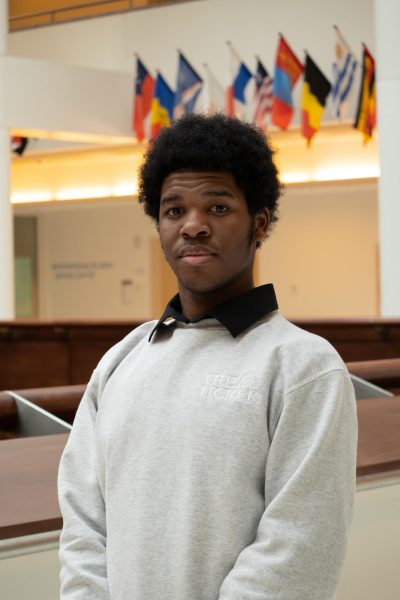During the latest New York Jobs CEO Council speaker series, Con Edison CEO Tim Cawley visited Baruch College to discuss job opportunities for students, the role of artificial intelligence in the industry, and the shift to clean energy.
In a fireside chat, Cawley and Baruch President S. David Wu discussed the range of job opportunities available to Baruch students at Con Ed, highlighting a program at the Zicklin School of Business that kick-starts students’ careers across various fields. As the company shifts toward clean energy and meeting other goals, it seeks a broader skill set in future and current employees.
“The people make all the differences in this,” Cawley said. “We tap Baruch’s talent early and often.”
Currently, Baruch students and graduates join Con Ed through multiple pipelines. The Zicklin Business Co-operative program, which started in October 2023, allows students to take a semester off to gain full-time professional experience at companies like Con Ed and Deloitte & Touche LLP.
The company’s leadership development program, which prepares participants for managerial roles, currently employs 30 Baruch graduates. A total of 200 alumni are currently employed at the utility giant.
A similar early college program helped Cawley get his start at Con Ed in 1987.
“For me, it was a really great way to start out of college because I got to try a lot,” Cawley told The Ticker. “It was a very structured program, a rigorous program, and I think I grew significantly during that period, and it positioned me well to launch into the more permanent roles that I took on after that.”
Cawley joined the company through what was formerly known as the Management Intern Program after studying electrical engineering at Union College. He began his career in electric distribution, leading overhead crews during emergencies.
He later moved between departments, working in the control center, environmental affairs and auditing. During the fireside chat with Wu, Cawley explained how moving around in the company helped prepare him for the new positions he would take.
“Forty-seven years of doing the same thing, I would not have lasted,” he said. “If you bounce around, you engage with different people, you can come across different challenges and it’s super energizing.”
Those experiences, Cawley said, prepared him for the wide-ranging responsibilities he handles daily as chief executive officer, from ensuring gas and electricity lines run smoothly to keeping development projects on track.
Another part of his job revolves around the changing policy regarding clean energy.
With the new administration’s approach to renewable energy, federal policy surrounding it — and the standards and regulations corporations must meet — could shift. Cawley noted that Con Ed’s dedication to New York climate laws wouldn’t waver since the utility company’s work is done at the state and city level. The CLCPA was passed in 2019 to mandate less fossil fuel reliance and streamline the transition to zero-emission electricity by 2040.
Much of the work surrounding the CLCPA focuses on increasing renewable energy for the grid, expanding battery storage to address wind and solar intermittency and meeting the growing demand for EV charging.
Such projects and initiatives require permitting, which the CLCPA’s guidelines say must be given by prioritizing less greenhouse gas emissions and ensuring no burden on disadvantaged communities.
While President Donald Trump has paused permitting for some renewable energy projects and rolled back offshore wind projects, its ability to affect states’ individual climate goals is unlikely at the moment. Despite this, Cawley is hopeful that some projects could get a jumpstart in the near future.
“Though the new administration, they are focused on energy security and some permitting reform to move things along that can help get the infrastructure built that we need to help people transition away from fossil fuel onto lower emitting energy sources,” Cawley told The Ticker.
The utility is also adjusting to AI advancements. Wu asked Cawley if it could affect the industry in any way. Cawley responded that the company’s use of AI is unfolding and being used carefully by the company’s teams that manage outages and conduct diagnostics on smart meters.
“I would say we’re making sure we have the right governance so you can use AI, but you can’t trust it — you’ve got to read it,” Cawley said.
With jobs evolving in the industry’s shift to clean energy, Cawley said that employees are taking on responsibilities as their jobs require a whole new skill set. However, he emphasized that employees showing curiosity and a willingness to learn are key to getting a strong start in the field.
Even without expertise in engineering, business or operations management, Cawley said there are many areas where skills and strengths can be valuable at Con Ed — whether that’s enhancing software or supporting the transition to EVs.
“There is an army that makes it happen in all sorts of fields, so don’t count yourself out at all,” he said. “If you’re bringing the characteristics, that’s good. We’re looking for good people, and there’s a bit to grow within the company.”










